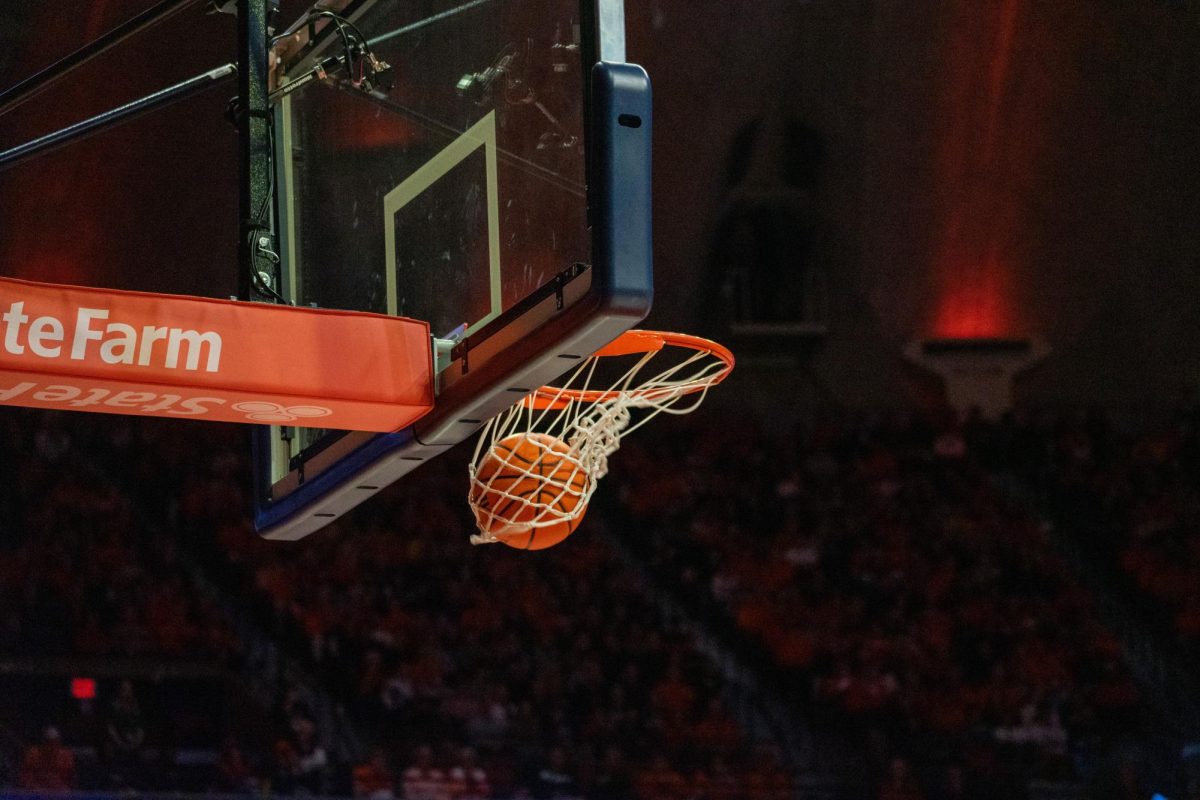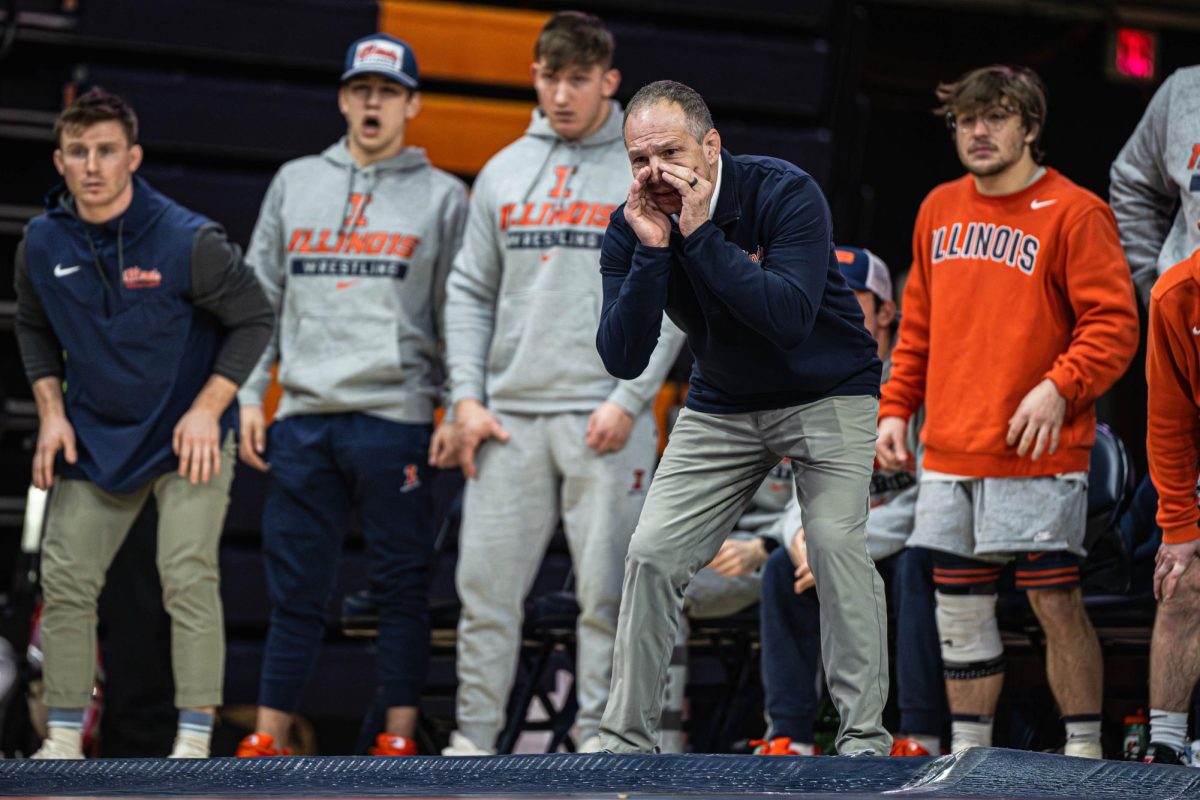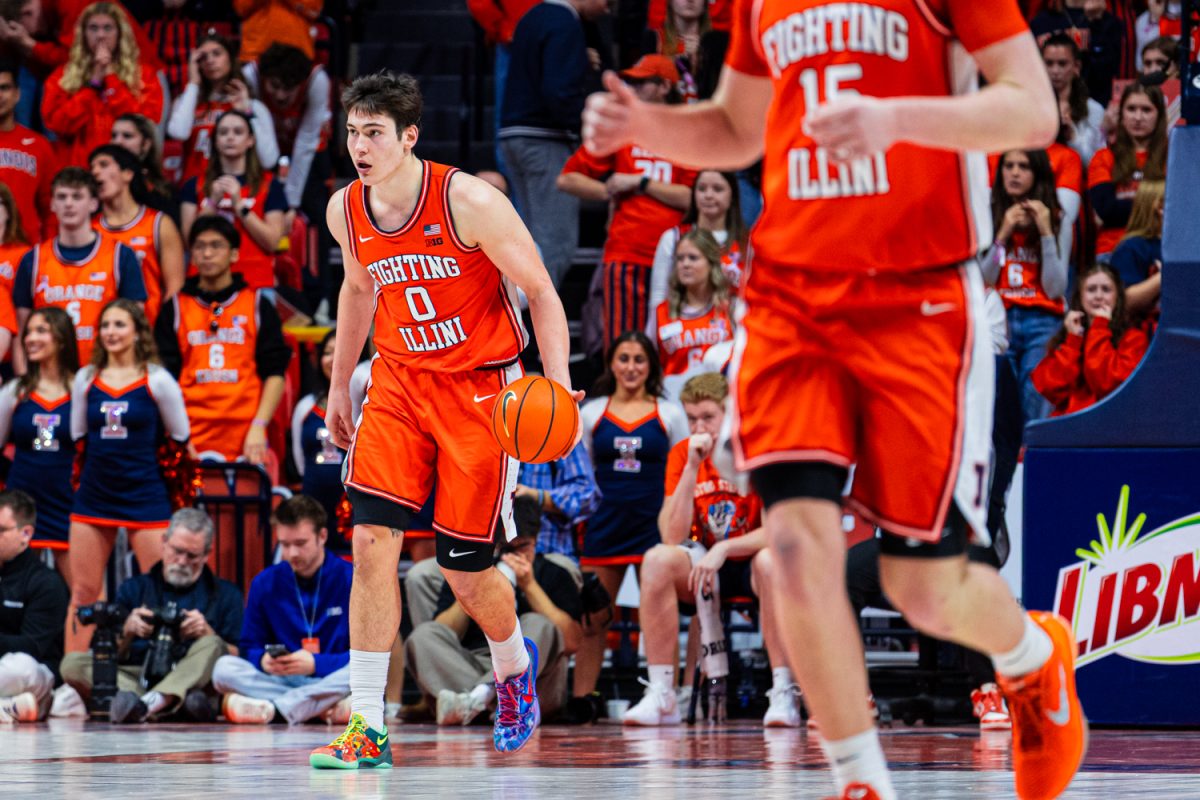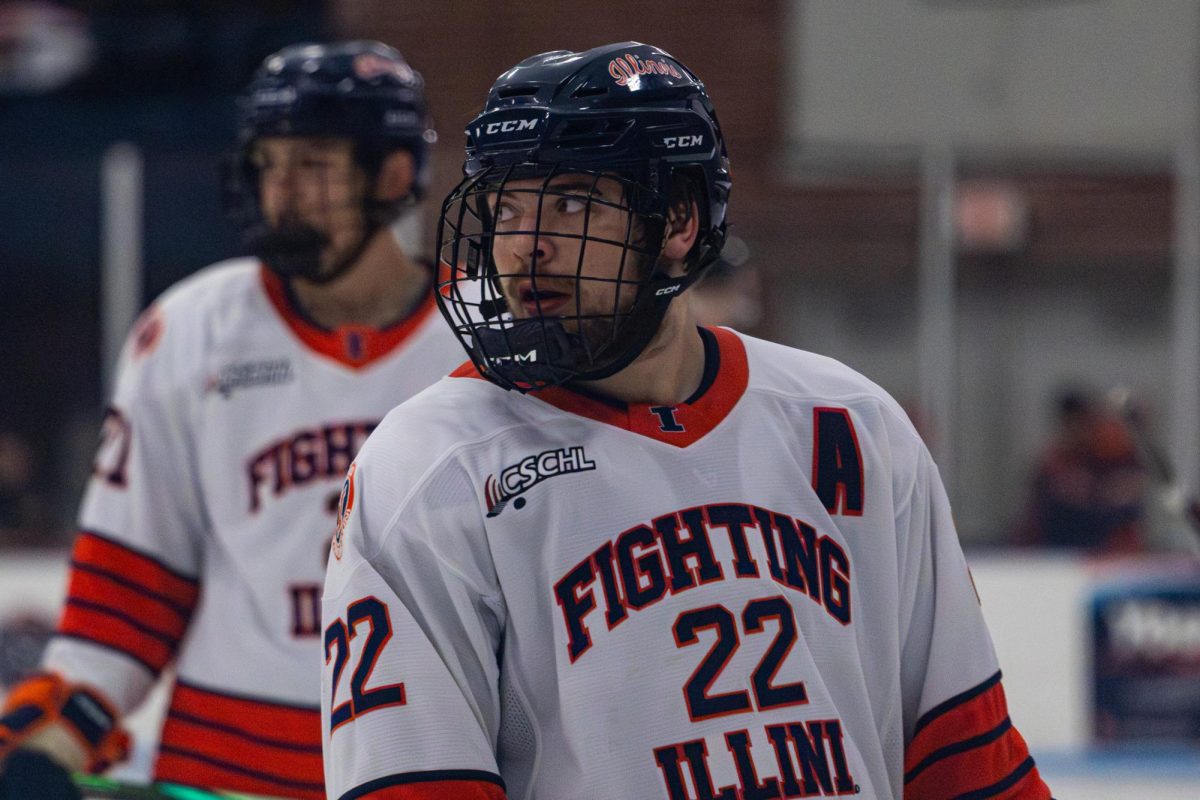Amid misconduct investigations of coaching staff at peer institutions including Northwestern and Michigan State University, the Illinois community is faced with the daunting possibility that our department could be next.
Over the summer, Northwestern’s student newspaper highlighted a former football player’s hazing allegations against recently dismissed head coach Pat Fitzgerald. This article sparked a nationwide dialogue surrounding power dynamics within collegiate athletics. Fitzgerald was dismissed before the beginning of the new school year.
More recently, MSU’s head football coach Mel Tucker was suspended and ultimately dismissed from his position following sexual harassment allegations.
The University is no stranger to violations of conduct guidelines on the part of its own administrative and coaching staff — former Illinois head football coach Tim Beckman was dismissed from his position in 2015 for allegations including failure to report player injuries.
The Daily Illini sat down with Ryan Squire, chief integrity officer at the University’s Division of Intercollegiate Athletics, to discuss the implications of stories like the ones at MSU and Northwestern in his work at the DIA.
Get The Daily Illini in your inbox!
DI: Generally speaking, what does your position as chief integrity officer entail for the DIA?
Squire: Well, I think there are two parts to it. On a day-to-day basis, I oversee all of our student-athlete support areas — the ones that touch the student-athlete experience every day. So, that would be their academic support, medical support, strength and conditioning, nutrition and compliance — which kind of weaves through all of those. The idea being that those are our biggest risk areas. If the department is going to end up in the news for the wrong reasons, it will probably be in these areas. We’ve carved those out (and) put those under our integrity umbrella under my oversight.
To simplify my role, it’s a lot of risk management — just to make sure that we’ve got the proper education, policies, procedures and reporting mechanisms in place to hopefully keep these bad things from happening, but if they do happen, (we) try to root them out at a low level before they become a crisis that has us in the news.
So risk management, protecting the reputation of the department and the University, making sure that our student-athletes are being treated the right way and having the best experience possible as far as their athletic experience, their academic experience and their social experience as students during their time here in our programs (are the most important qualities we emphasize).
DI: Post-hiring, when they are already onboarded and they’ve read or signed all the documents, how often is it reiterated to an employee that they have this code of conduct to follow?
Squire: Well, the conduct expectations — and they apply to all employees, not just coaches — are incorporated into the notice of appointment that all of us receive as employees on an annual basis. Then, certainly, when situations come up, the current events around the country that we think can be educational for our coaches, then we’ll have those conversations. For example, this past summer when the hazing allegations came out at Northwestern, we called a meeting with our head coaches to specifically speak to that topic. I would say, yeah, with regularity we address those situations to help make sure that the coaches understand their obligations with respect to those types of situations.
DI: How are public cases like these impacting the ways that protocols are followed here in the athletics department?
Squire: I think whenever a situation happens across the country that identifies a potential risk here, we certainly never think that we’re above anybody else or that those types of situations couldn’t happen here. We always take a look at what we’re doing internally to make sure that we have the right policies in place, and the right educational efforts in place.
And so we do it with regularity when the situations arise — pretty much every time.
When something negative happens to another school, we understand that we need to look inside our own house to make sure that we have the right measures in place.
DI: How extensive are vetting and background checks when searching for new hires, particularly ones that come into close contact with players?
Squire: Well, extensive. That’s all part of our recruitment process, search process and interview process. Once we get to the point of an offer, then there is a formal background check process that happens with every employee top to bottom in the department — whether they’re in regular contact with student-athletes or not — to look for things like criminal history or anything like that. It’s an extensive process, but probably more extensive when it is a coach or someone else who will be in contact with student-athletes.
DI: Throughout collegiate and professional sports, there have been instances wherein players or coaching staff have had public violations of general conduct guidelines. Are folks who have widely recognized instances of misconduct given less consideration for coaching or administrative positions?
Squire: Sure, yeah. I mean, at the beginning of a search when we’re even identifying our list of which candidates we would like to speak to, part of that process would be to identify any history of misconduct or mistreatment of athletes, or other public information that might help us make determinations as far as who we would want to speak to. Absolutely. Those are some of our first considerations when we’re even at the start of the search process.
DI: What can this athletics department and other athletic departments, in your opinion, do in order to prevent these kinds of situations from arising? Even if everything seems fine?
Squire: I think the thing that we talk about all the time with our coaches and student-athletes is, you know, sure we have the language in the contract, sure we have policies against things like hazing or sexual harassment — every institution in the country has those. What we speak to is, at a deeper level, creating a culture where people feel empowered to speak up if they encounter a situation that doesn’t feel right. We think that we can identify a small problem before it becomes a big problem if people are willing to speak up, no matter what level of the organization they’re in. Whether they’re a student, a coach, an athletic trainer, an administrator, or whatever, we encourage people (to ask) questions if they observe or experience something that doesn’t feel right to them.
And we hope to identify those small problems before they become a crisis that lands us in the news for the wrong reasons as you’ve seen with some of these other places.
DI: So, how does Fighting Illini Athletics weigh these issues with the success of the programs? For instance, if a coaching staff or administrative staff member is central to the success of Illini athletics, are they more likely to receive a second chance or is it a no-tolerance approach across the board?
Squire: I think it’s the latter — no tolerance across the board. There are certain behaviors we use that exact verbiage to express — that we have zero tolerance for things like hazing, sexual harassment and discrimination — it would not matter if it was someone who has or has not had a lot of success when it comes to those types of behaviors for sure.
DI: Are there personnel within the athletics department who are tasked with determining that?
Squire: Yeah — I think all of our leadership team (is). We have a group of sports administrators that are assigned to oversee certain sports programs. Each one has a handful of sports that they oversee. Of course, Josh — our athletic director — and I, would look into any sort of situation where there is any allegation of misconduct, mistreatment or anything like that at the initial level. We have dedicated compliance people who are assigned to work on issues of rules of compliance. We have, of course, academic folks if there’s an academic integrity issue. We have medical staff that would work through a medical issue. So, all kinds of specialized staff members would work through the situation depending on what exactly the facts of the case happen to be.
DI: Are investigations like that performed locally within the program or do you bring in outside personnel to assist in that process?
Squire: It depends. In some cases, it would be a cooperative effort with others on the University campus. Depending on what the facts of the case would be, if it’s a student discipline issue, then the Office of Student Conflict Resolution would be involved. If it’s a Title IX issue, Title IX would be involved. The Office of Access and Equity, (for example, would be involved) if there was a discrimination issue of some kind. It could be any of those types of other University offices getting involved with us to help work through a situation. We work together with all of those other offices on campus, depending on what the information is that we’ve received. If it’s purely an athletics misconduct issue, then we would just handle it internally and work through it with our administration in that way.
DI: Any closing thoughts?
Squire: I appreciate the questions. I think as we said at the beginning, whenever situations arise at other institutions when people end up in the news for the wrong reasons, we always take that seriously. We use it as an educational opportunity for us to learn from and for us to help educate our coaches and athletes about where we stand on those things, to make sure we have the right policies and procedures in place. We encourage everyone to have a voice and not be afraid to speak up and ask questions, because we send that message strongly regularly to our athletes. We can’t help if we don’t know.
So, we really encourage speaking up — we have some really, I think, accessible reporting avenues for them to get to us if they want to report something anonymously or in a way that’s identifiable. It’s something that we take seriously and work very hard on — we will continue to do so.







